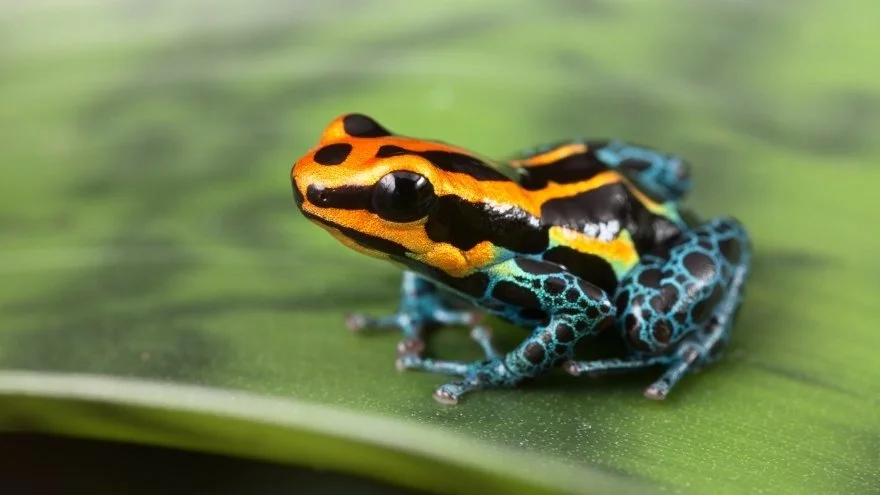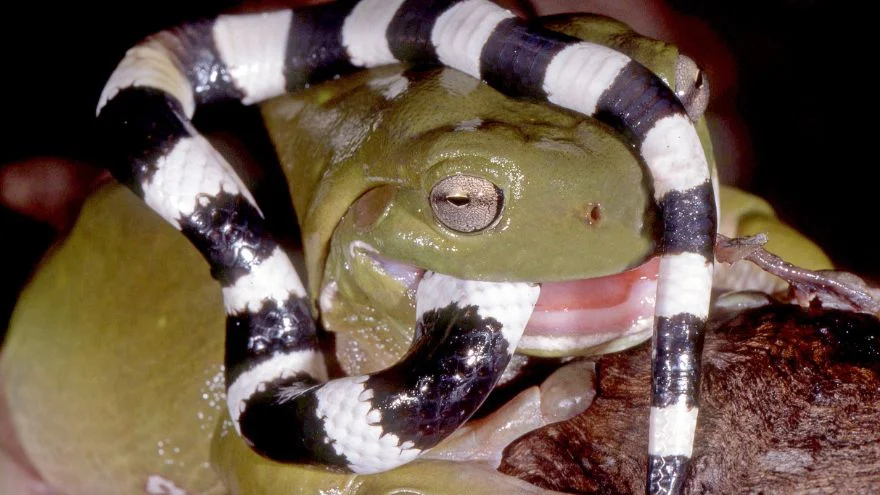We don’t think often of frogs when it comes to intelligent animals.
This is mainly because we have a host of other mammals who show a remarkable level of intelligence, almost humanlike.
Compared to these mammals, are frogs smart? The truth is that frogs don’t stand a chance. However, does it mean they are not intelligent?
While not as intelligent as mammals and some other animals, frogs do show a certain level of smartness.
They are capable of learning and adapting to their environment, which is evident in how they mate and how they hunt prey.
This article takes an in-depth look into the frog’s intelligence.
Frogs – An Overview

A frog is a semi-aquatic amphibian notable for its hopping nature and lack of tail.
It is categorized under the order Anura and can be found worldwide (with the possible exception of Antarctica).
They live in various habitats, but their preferred environment seems to be rainforests.
There are many frog species in the world, ranging from small to big, but they all have the same physical looks.
A stout body, popping eyes, and a long, retractable tongue are some common features of frogs.
Frogs secrete glands from their skin and the brightly colored ones are usually poisonous.
Adult frogs often divide their lifetime between water and land, but when they lay eggs, they do so in water.
The eggs hatch to become tadpoles, and the latter stays completely underwater till it grows.
Tadpoles are herbivores, but the adult frog feeds on only animals—from insects to small rodents.
Are Frogs Smart?

Frogs have been known to display intelligence, and as such, they are considered the most intelligent amphibians alongside toads.
While their brains are simpler compared to reptiles and mammals, frogs are not incapable of learning.
This smartness is displayed in their choice of habitat, mating, and protection of young ones.
Frogs are intelligent enough to locate a place with enough food, clean water, and safety on their own.
They also have their mating process, right from attracting the opposite gender to the main act.
Finally, the methods used in protecting their eggs show some intelligence in these cold-blooded animals.
Are Frogs Dumb?
Compared to mammals, frogs might come across as dumb because their brains aren’t as developed as these mammals.
Mammals have bigger brains and a level of self-awareness that frogs don’t possess.
However, when you measure frogs based on their merits and not on how they fare with mammals, you’d find that frogs show intelligence.
They don’t need to depend on a human to meet their needs, and they are capable of learning and adapting. For these reasons, frogs cannot be called dumb.
Can Frogs Recognise Humans?
Unlike dogs and cats, the self-awareness of frogs is low. As such, they may not be able to recognize your face each time you step close to them.
Frogs in the wild often associate humans with predators and are more likely to either run away or challenge the person.
Pet frogs would associate humans with the level of comfort or security they have. Whoever brings the food tends to be more “recognized” than others.
Are Frogs Good Pets?

Certain frog species can be good pets, and if you’re a frog lover or just want a new pet experience then go for it.
However, if your idea of companionship involves cuddles, getting a pet frog won’t be a good idea.
Frogs don’t like to be held or carried as that takes them out of their safe environment and compromises their safety.
Also, the sweat on your hands can affect their health, and their skin can also affect you, even if the species isn’t a poisonous one.
How Do Frogs Live in the Wild?
Intelligence plays a big role in helping the frog survive in the wild, especially during weather changes and avoiding predators.
It chooses an appropriate habitat based on the weather and food available and has different methods it uses to hide from predators, including camouflage.
Final Thoughts on Frog Intelligence
Do not underestimate frogs. They may not match up to the level of mammals and some reptiles in intelligence, but they are not void of smartness either.
They are capable of learning, adapting, meeting their needs, and protecting themselves and their young ones. All these are proof of active minds.
Check out these interesting articles:
Featured Image Credit: kororokerokero / Getty Images




![How Long Can Frogs Go Without Food Or Water [Answered]](https://animalvivid.com/wp-content/uploads/2022/08/How-Long-Can-Frogs-Go-Without-Food-Or-Water-Answered.jpg.webp)

